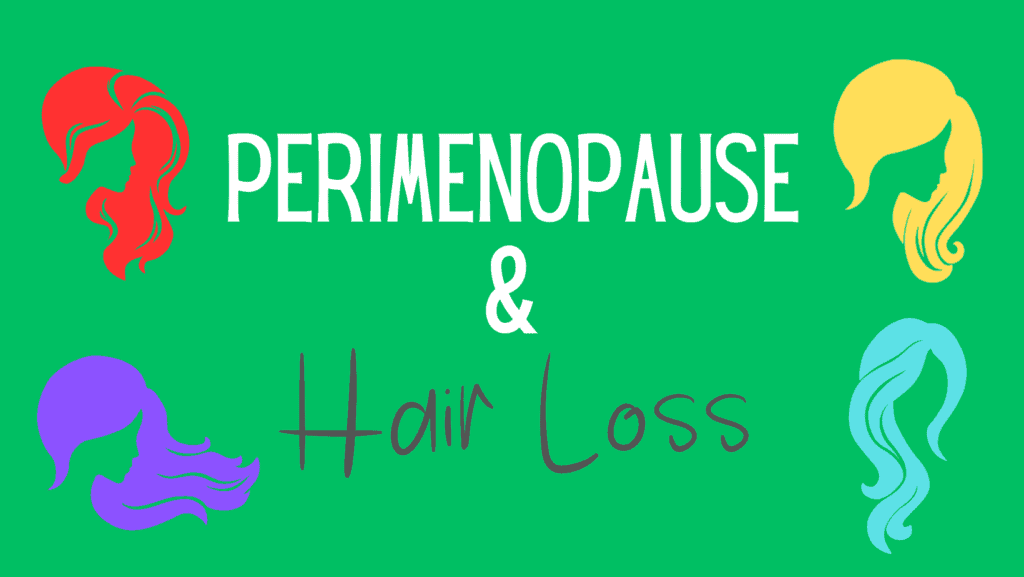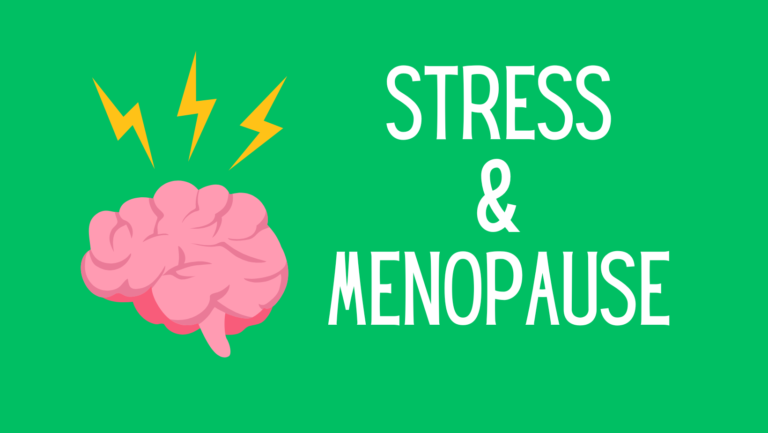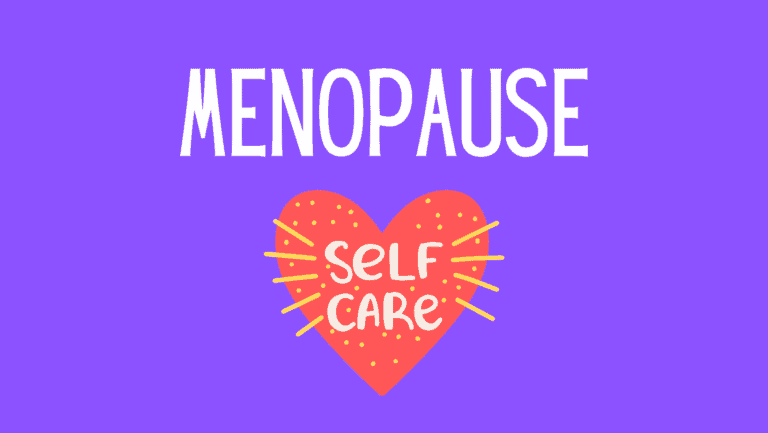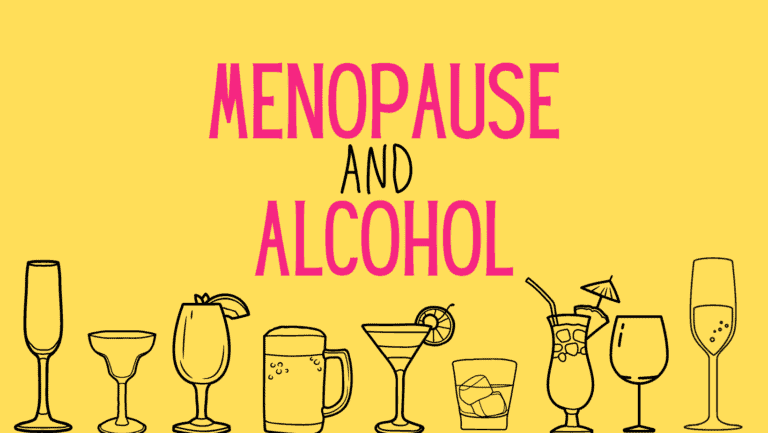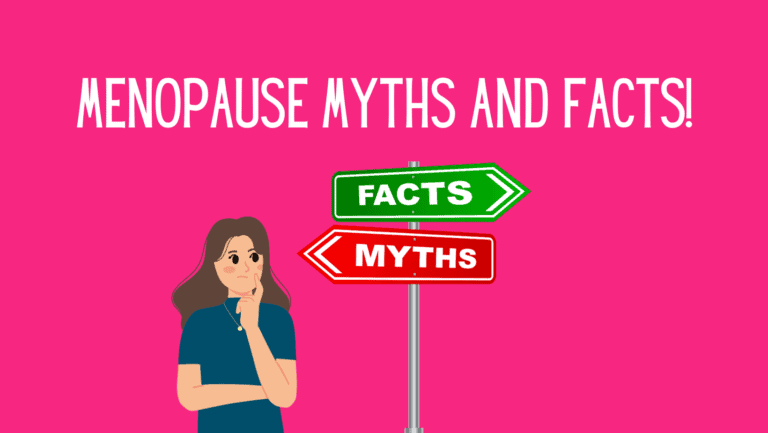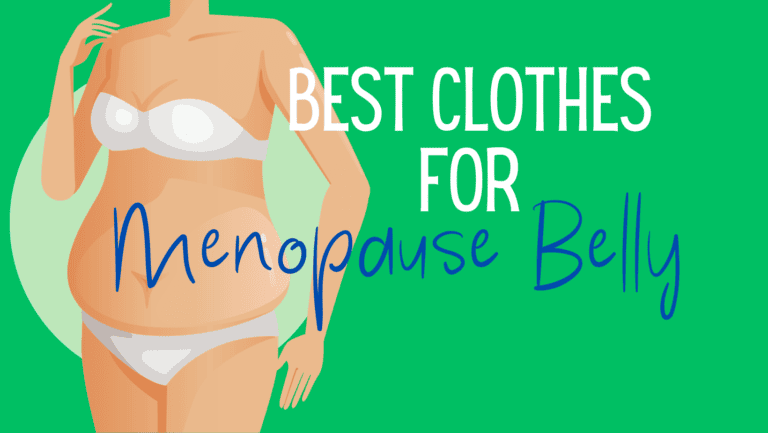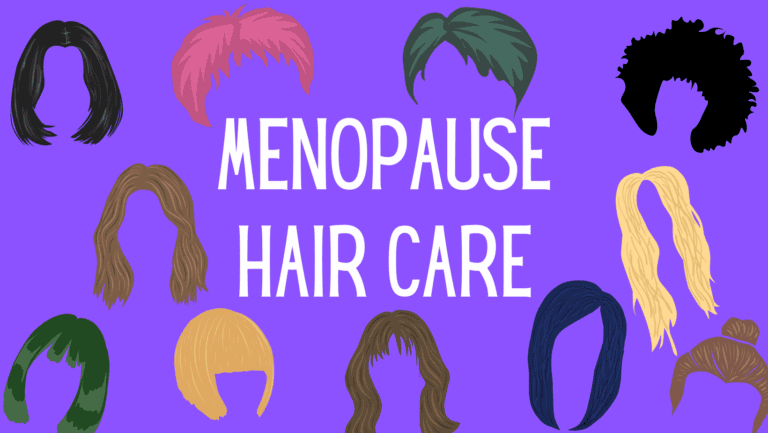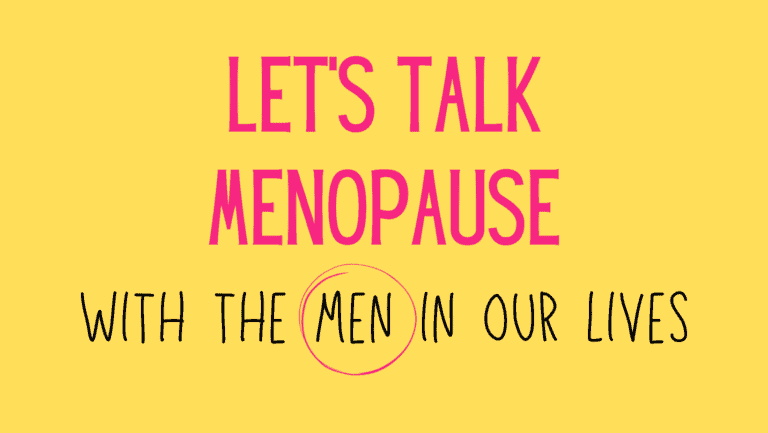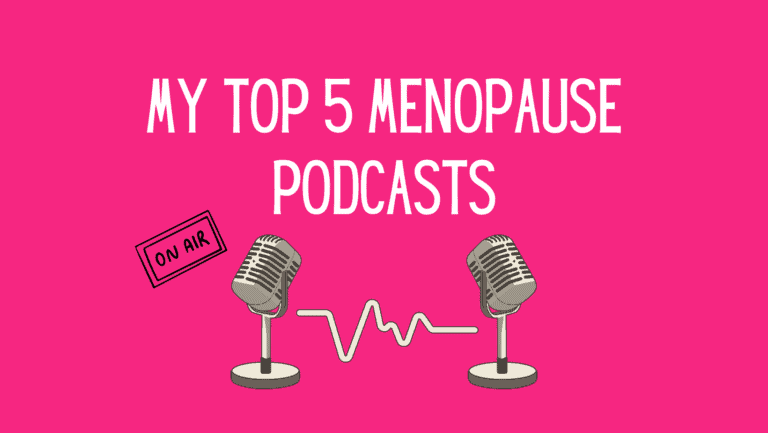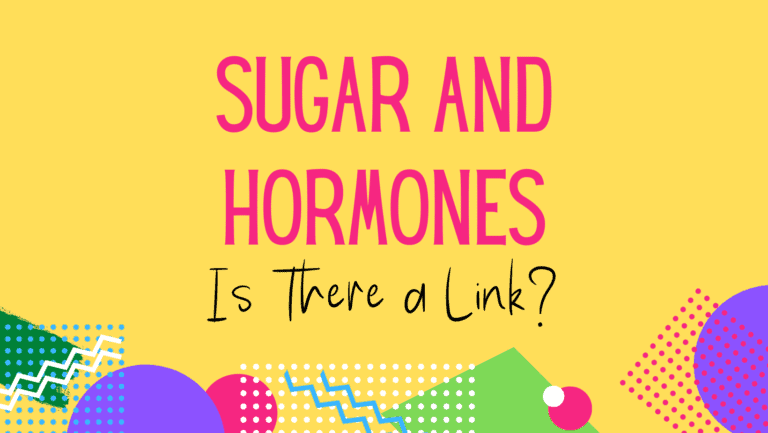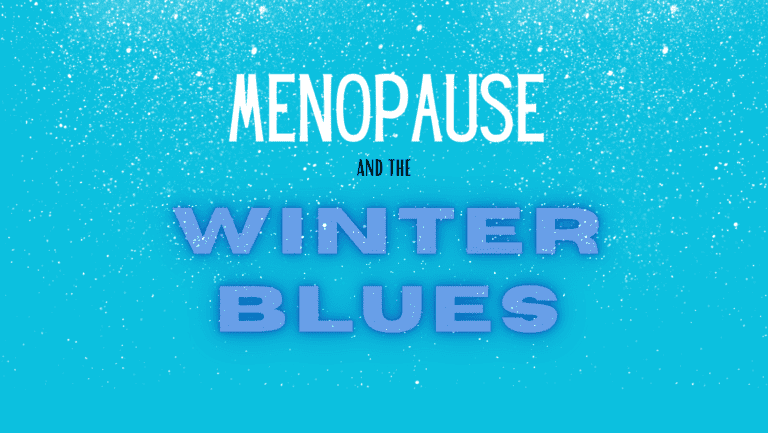Understanding how perimenopause and hair loss are connected will help in finding out the best ways to manage this stressful symptom.
Perimenopause, often referred to as the transitional phase before menopause, brings about massive changes in our bodies.
A big concern for many of us ladies is hair loss.
Perimemopause And Hair Loss – Understand The Connection:

Perimenopause is the stage in our lives where our female hormone, estrogen (also known as oestrogen) is not only declining but fluctuating wildly.
When estrogen declines we find that we are all of a sudden exhausted, have brain fog, our joints really hurt, anxiety is through the roof and many more weird symptoms turn up.
Estrogen plays such a vital role in maintaining healthy hair growth that when these levels drop so does the health of our hair.
Hair follicles shrink from when we are in our mid-forties so age plays a part in thinning hair.
Menopausal women find that they now also have brittle hair, their scalp is dry and they notice their hair falling out more often.
This was one of my earliest signs of perimenopause. My hair was so brittle and thin, it was see-through.
How Can I Stop Perimenopause Hair Loss?

There are a few tips that I have gathered together which can help with hair thinning.
Some of them may be worth a go if you are struggling with your hair health during perimenopause.
Keep Stress Levels Low
Stress messes with our cortisol and cortisol at high levels messes with what need to keep our hair healthy.
I know that when our hormone levels drop and we have raging menopause symptoms, keeping stress down can be almost impossible but it is worth a try.
A few stress-busting tips from me:
Meditation – I love meditation. I meditate as much as I can to keep me calm. With a busy job, kids and a house to run it helps with my mood swings, anxiety and stress levels
Exercise – With so many perimenopausal symptoms, you might not want to hit the gym, but a nice brisk morning walk will do wonders.
Sleep – Getting a good night’s sleep can do wonders for your stress levels. It can be really tough if night sweats are one of your symptoms, but trying to get good hours in is crucial.
Kindness – Be kind to yourself. Many women put a lot of pressure on themselves. To be the perfect everything, this is never going to happen. Treat yourself exactly like you would treat your best friend, with kindness.
Think About Nutrition
A balanced diet is so important for healthy hair growth.
Studies have found that low levels of vitamins B12 and vitamin D, iron, riboflavin can contribute to hair loss.
From personal experience, when I was losing my hair in my late 30s I was so worried I went to a trichologist to get help.
It turns out that I had an iron deficiency from perimenopausal heavy periods and my hair was snapping before it got a chance to grow longer.
Since taking iron tablets (GP prescribed) my fine hair is much thicker and can grow to a healthy length now.
Could there be something missing in your diet that could help keep this menopausal hair loss at bay?
Water, Water, Everywhere
Being water savvy is not the first thing you think of when you are looking to restore hair growth.
Water makes up 25% of a single strand of hair, so if we are dehydrated this is going to cause hair loss.
Keeping our hydration levels up we keep our scalp healthy, and our hair follicles are adequately hydrated.
Au Naturel
I speak as a girl with wavy, but very fine hair.
Straightening and blow drying my hair is something I have always done, but it is SO bad for your perimenopause hair loss.
Intense hair drying will damage the hair shaft and straightening will cause heat damage. We know this and up until now, it has been OK.
Now you are perimenopausal your hair needs a new way of styling.
If you are like me and need to blow dry your hair, then remember to use heat protection spray at all times.
Whilst I am at it, tight ponytails, or any tight hairstyle, puts a lot of stress on the hair follicle. So just try not to scrape your hair back.
Does Perimenopause Hair Loss Grow Back?
The one good thing in all of this is that yes, your hair will come back but it may not be exactly as it was before.
There is nothing worse when you feel self conscious and you are struggling with all menopausal symptoms you are. So knowing that this rotten symtom will get better is good news.
Will HRT Help With Hair Loss?
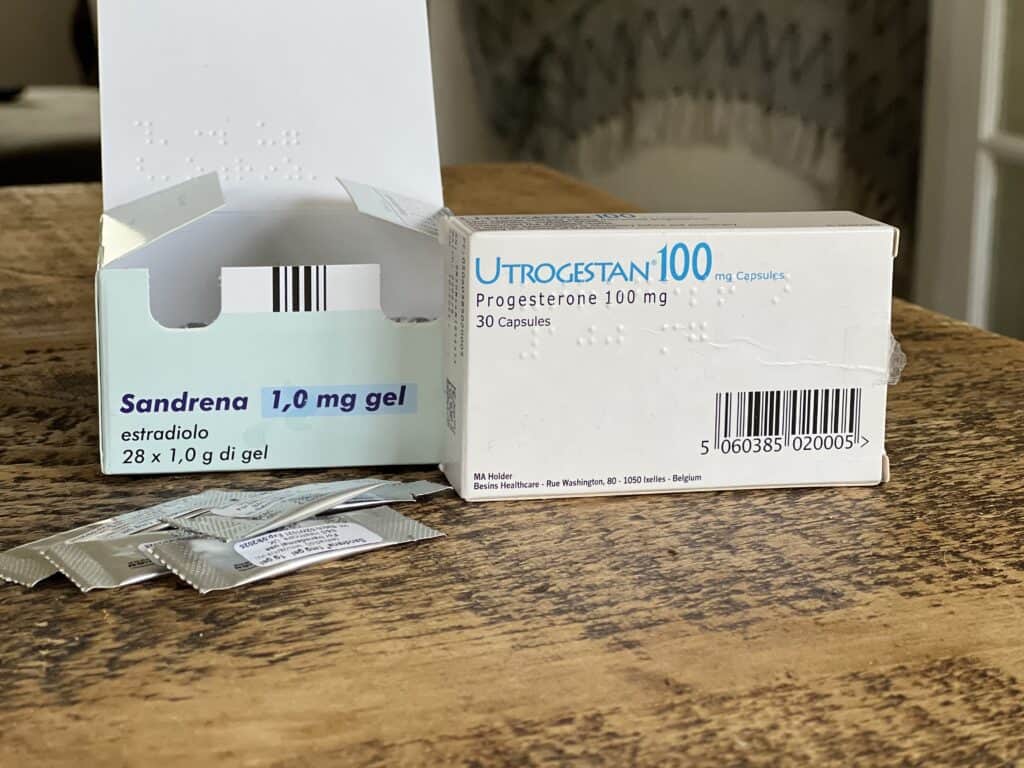
Hair loss in women can slow down or sometimes stop completely with hormone replacement therapy.
I take body identical oestrogen gel and progesterone tablets as my combined HRT. My hair is in great condition now, and 95% of the other symptoms I had, have gone.
If you think HRT might be a good option for you, please go and speak to your doctor or menopause specialist.
Closing Thoughts
When you experience hair loss as a woman it is devastating.
My confidence was at an all time low.
There are things we can do to help but if you feel like hair loss is really starting to get you down, please speak to a professional.
This can be your doctor, a consultant dermatologist, a trichologist or even your girl pals in the first instance.
It’s not fun, hair loss, and you need to be really certain why you are losing your hair. If you are losing lots of hair, or it is coming out in clumps, PLEASE get it checked out urgently by a healthcare professional.
Navigating perimenopause and its effects on hair health takes. a lot of effort, but know that there is light at the end of the tunnel.
There are ways to stimulate hair growth, there are styles we can adopt for a while, there are small steps we can take to help.
Your hair growing phase is not quite over yet, young lady.
Kathryn x
Table of Contents
Disclaimer: I am not a medical professional, herbal or physical therapist, and I am not educated in the menopause space. All opinions expressed on this blog are my own and should not be taken as medical advice. This blog is intended to share my personal experiences and insights, and should not be used as a substitute for professional advice. Please consult a qualified medical professional, herbal or physical therapist for any health-related concerns. Additionally, I strive to keep things light and entertaining, but please keep in mind that the topics discussed on this blog may be sensitive or triggering for some readers.
Resources on all things hair loss:
Get Your Free Perimenopause Symptom Checker
Thank you!
Your symptom checker is on its way to you!
